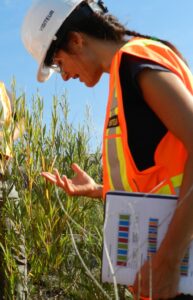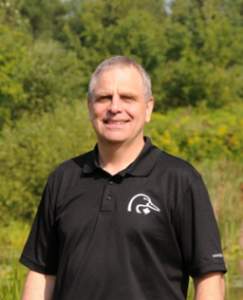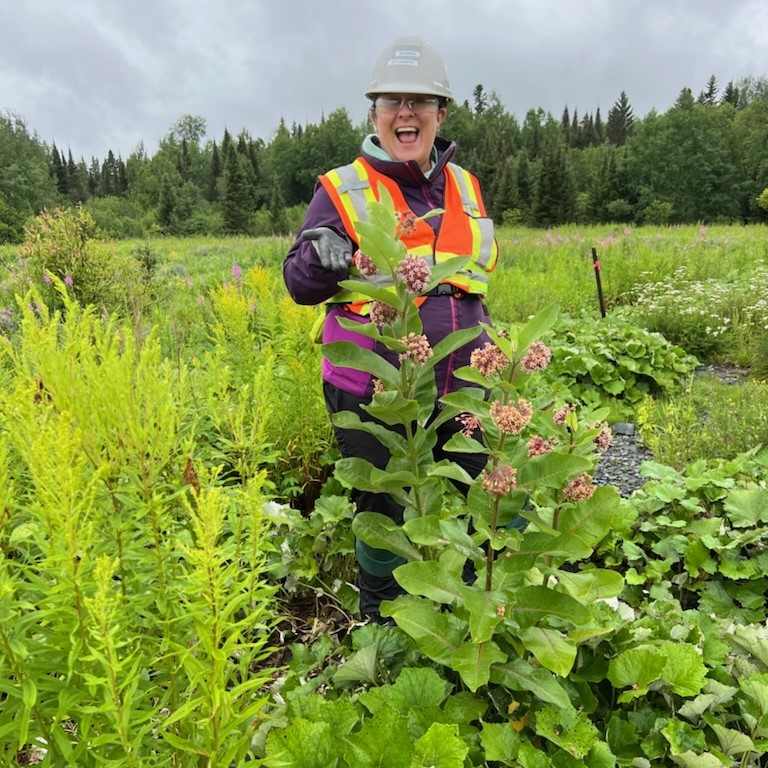The Board Officers and Staff include two co-chairs (one from Québec and one from Atlantic Provinces, a minimum of 3 up to 14 Board Members or Directors with equal participation (when possible) of representatives from Québec and Atlantic provinces, and one non-voting coordinator.
Les dirigeants du conseil d’administration et le personnel comprennent deux coprésidents (un du Québec et un des provinces de l’Atlantique, un minimum de 3 à 14 membres ou administrateurs du conseil avec une participation égale (si possible) de représentants du Québec et des provinces de l’Atlantique, et un coordinateur non-votant
The Board is composed of the following peoples / Le conseil d’administration est composé des personnes suivantes :
Co-Chairs:
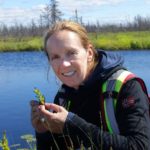 Line Rochefort, the Quebec Region Co-chair of SER-EC, is a professor in the Department of Plant Sciences at Université Laval (Québec, Canada) and member of the Centre for northern studies (CEN). She has founded the Peatland Ecology Research Group and she is the instigator of a new field of research in Canada, namely the development of peatland restoration techniques after peat extraction or infrastructure disturbances and of Sphagnum farming projects. Other fields of expertise are: ecology of Greater Snow Goose nesting habitat in the Arctic; restoration of borrow pits of roads and mining sites in boreal regions using native plants, in particular with bryophytes and lichens (biological crusts). She is also the National correspondent for Canada for the Scientific and Technical Review Panel (STRP) of the Ramsar Convention.
Line Rochefort, the Quebec Region Co-chair of SER-EC, is a professor in the Department of Plant Sciences at Université Laval (Québec, Canada) and member of the Centre for northern studies (CEN). She has founded the Peatland Ecology Research Group and she is the instigator of a new field of research in Canada, namely the development of peatland restoration techniques after peat extraction or infrastructure disturbances and of Sphagnum farming projects. Other fields of expertise are: ecology of Greater Snow Goose nesting habitat in the Arctic; restoration of borrow pits of roads and mining sites in boreal regions using native plants, in particular with bryophytes and lichens (biological crusts). She is also the National correspondent for Canada for the Scientific and Technical Review Panel (STRP) of the Ramsar Convention.
 Jeremy Lundholm, the Atlantic Region Co-Chair of SER-EC, is a professor in the Biology Department of Saint Mary’s University (Nova Scotia, Canada) and associate with CB Wetlands and Environmental Specialists. He founded the first green roof research lab in Atlantic Canada and is globally recognized as a pioneer in the application of community ecology to green roofs. He has over 20 years of experience in coastal wetland restoration and nature-based adaptations. His other fields of expertise are plant ecology, restoration and vegetation classification in barrens and heathlands; urban ecology; ecosystem services. He is also the co-chair of the Nova Scotia Plant Recovery Team.
Jeremy Lundholm, the Atlantic Region Co-Chair of SER-EC, is a professor in the Biology Department of Saint Mary’s University (Nova Scotia, Canada) and associate with CB Wetlands and Environmental Specialists. He founded the first green roof research lab in Atlantic Canada and is globally recognized as a pioneer in the application of community ecology to green roofs. He has over 20 years of experience in coastal wetland restoration and nature-based adaptations. His other fields of expertise are plant ecology, restoration and vegetation classification in barrens and heathlands; urban ecology; ecosystem services. He is also the co-chair of the Nova Scotia Plant Recovery Team.
Board Members (Quebec Region):
Bérenger Bourgeois is the treasurer of SER-EC, and he is an assistant professor in the Department of Plant Science at the Faculty of Agricultural and Food Sciences at Université Laval. His work aims to promote the development of sustainable, multifunctional agriculture capable of reconciling agricultural production and environmental preservation.
Marie Guittonny: Marie has a PhD in Environmental Biosciences and she a Professor-researcher at the Research Institute on Mines and Environment (RIME) at Université du Québec en Abitibi-Témiscamingue (UQAT). Her expertise focuses on the revegetation and restoration of mining sites, and she is the co-editor of the book Hard Rock Mine Reclamation: From Prediction to Management of Acid Mine Drainage. Marie is the scientific director of the partnership on abandoned mine site reclamation between UQAT and the Ministère des ressources naturelles et forêts du Québec (MRNF).
André Michaud: André has a bachelor’s degree in biology, and he is the manager of the Wetland Creation and Restoration Program with Ducks Unlimited Canada. He specializes in wetland restoration and creation projects for waterfowl and fish, mainly along the St. Lawrence and Ottawa rivers.
Marie-Claire LeBlanc: Marie-Claire has a Master’s degree in Land Use Planning and Regional Development from Université Laval and spent 10 years at the Peatland Ecology Research Group (PERG). She co-edited the new edition of the Peatland Restoration Guide (2020) and she is the Projects, Peatlands Affairs and Communications Manager with the Canadian Sphagnum Peat Moss Association (CSPMA).
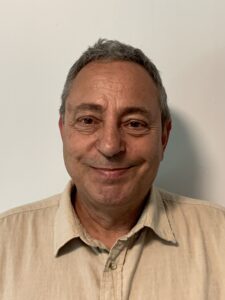 François Quinty: François has a Master’s degree and specializes in peatlands; he joined the Peatland Ecology Research Group (PERG) in 1992. His work includes vegetalization and stabilization of disturbed sites such as sand and gravel pits, roadsides and mine tailings, as well as restored wetlands in the boreal zone of Québec. He has also directed environmental impact assessments for peatland development projects in Québec, New Brunswick, Saskatchewan and Manitoba.
François Quinty: François has a Master’s degree and specializes in peatlands; he joined the Peatland Ecology Research Group (PERG) in 1992. His work includes vegetalization and stabilization of disturbed sites such as sand and gravel pits, roadsides and mine tailings, as well as restored wetlands in the boreal zone of Québec. He has also directed environmental impact assessments for peatland development projects in Québec, New Brunswick, Saskatchewan and Manitoba.
Board Members (Atlantic Region):
 Tony M. Bowron works on coastal wetland restoration and related climate change adaptation projects throughout Atlantic Canada since 1998 had contributed to the restoration of over 400 ha tidal wetland habitat. His areas of expertise are tidal wetland ecology, restoration and monitoring; climate change adaptation; building with nature; dykeland management; coastal resilience. He is CEO & coastal wetland ecologist with CBWES Inc., a Nova Scotia–based habitat restoration and environmental research, co-founder of the TransCoastal Adaptations Centre for Nature-Based Solutions, and an adjunct professor in the Department of Environmental Science at Saint Mary’s University.
Tony M. Bowron works on coastal wetland restoration and related climate change adaptation projects throughout Atlantic Canada since 1998 had contributed to the restoration of over 400 ha tidal wetland habitat. His areas of expertise are tidal wetland ecology, restoration and monitoring; climate change adaptation; building with nature; dykeland management; coastal resilience. He is CEO & coastal wetland ecologist with CBWES Inc., a Nova Scotia–based habitat restoration and environmental research, co-founder of the TransCoastal Adaptations Centre for Nature-Based Solutions, and an adjunct professor in the Department of Environmental Science at Saint Mary’s University.
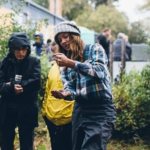 Sarah Scarlett is a Project Coordinator with McCallum Environmental Ltd, a predominant biophysical consultant in Atlantic Canada specializing in wetland and aquatic assessments, restoration and offsetting. She has over 10 years experience in wetland sciences, research and restoration work across Canada in academic, government, industry and consulting sectors. She has participated in in multiple environmental committees and projects in western and eastern Canada and led the implementation of Manitoba’s peatland management Act and Regulations as the province’s Peatland Specialist.
Sarah Scarlett is a Project Coordinator with McCallum Environmental Ltd, a predominant biophysical consultant in Atlantic Canada specializing in wetland and aquatic assessments, restoration and offsetting. She has over 10 years experience in wetland sciences, research and restoration work across Canada in academic, government, industry and consulting sectors. She has participated in in multiple environmental committees and projects in western and eastern Canada and led the implementation of Manitoba’s peatland management Act and Regulations as the province’s Peatland Specialist.
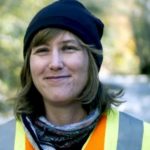 Natalie Deseta is an Environmental Coordinator for the Department of Environment and Local Government, Province of New Brunswick, Canada. Her expertise is related to geoscience, and ecology, as well freelance science communication, graphic design and technical writing for a wide range of applications and environmental subjects. Her experience in the environmental field has focused on community-based science, outreach, environmental monitoring, floodplain restoration and removal and remediation of aquatic barriers.
Natalie Deseta is an Environmental Coordinator for the Department of Environment and Local Government, Province of New Brunswick, Canada. Her expertise is related to geoscience, and ecology, as well freelance science communication, graphic design and technical writing for a wide range of applications and environmental subjects. Her experience in the environmental field has focused on community-based science, outreach, environmental monitoring, floodplain restoration and removal and remediation of aquatic barriers.
Dr. Marion Tétégan Simon is the Research Director at the Coastal Zones Research Institute inc. (VALORĒS) and is a specialist in geosciences and environment. She has been working in innovation & applied research for, and in collaboration with, various community and industrial sectors since 2005. After 10 years working on soil water availability in France, Marion completed two post-doctoral fellowships in Québec and France respectively, after which she joined VALORĒS in 2014. Marion is also the representative of New Brunswick on the Advisory Council of Sustainable Development since December 2020 with a mandate to advise Canada’s Minister of Environment and Climate Change on sustainable development issues, and to contribute to the Federal Sustainable Development Strategy. She is also the recipient of the King Charles III Coronation Medal recognizing her commitment to promoting the Acadian Peninsula.
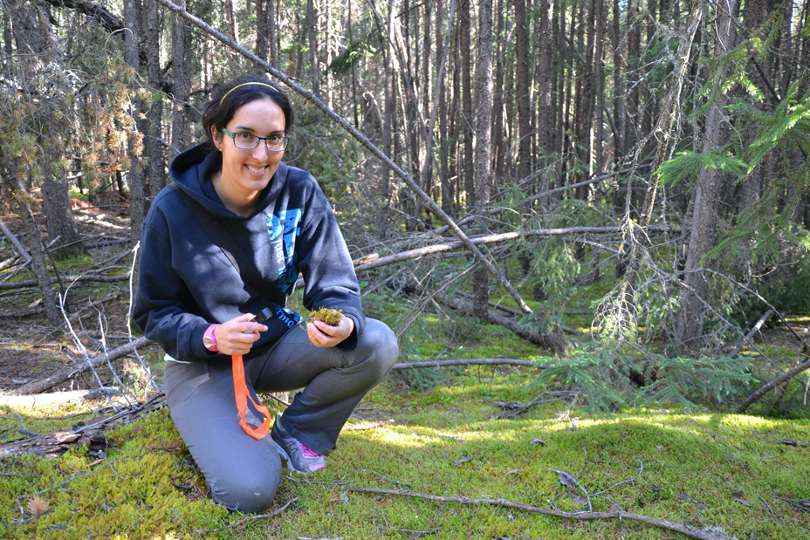 Mélanie Jean is the secretary of SER-EC, and she is an assistant professor in the Département de biologie from the Université de Moncton. Her research focuses on bryophyte and understory plant ecology in the temperate to subarctic forests, including plant community dynamics, human or natural disturbances, plant-soil and plant-microbiota interactions, nitrogen fixation and functional traits.
Mélanie Jean is the secretary of SER-EC, and she is an assistant professor in the Département de biologie from the Université de Moncton. Her research focuses on bryophyte and understory plant ecology in the temperate to subarctic forests, including plant community dynamics, human or natural disturbances, plant-soil and plant-microbiota interactions, nitrogen fixation and functional traits.
 Ellie Goud is an Assistant Professor at Saint Mary’s University and Adjunct Professor at the University of Waterloo, where she also completed her postdoctoral research. He has a PhD in Ecology & Evolutionary Biology from Cornell University, an MSc in Geography and a Bsc in Botany both from McGill University. Her research is related to plant responses to environmental stress, especially soil salt, acid and metals.
Ellie Goud is an Assistant Professor at Saint Mary’s University and Adjunct Professor at the University of Waterloo, where she also completed her postdoctoral research. He has a PhD in Ecology & Evolutionary Biology from Cornell University, an MSc in Geography and a Bsc in Botany both from McGill University. Her research is related to plant responses to environmental stress, especially soil salt, acid and metals.
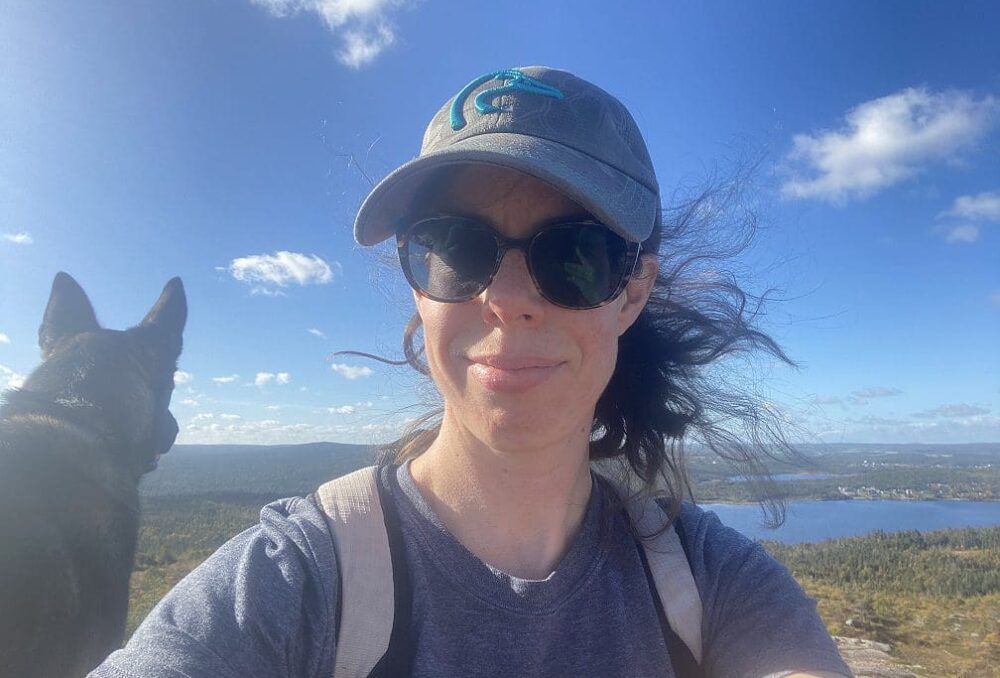 Danielle Fequet has an MS in Environmental Science from Memorial University, and has been working for Ducks Unlimited Canada in Newfoundland and Labrador since 2010. She is the Head of Land Securement and Stewardship in DUC’s conservation programs.
Danielle Fequet has an MS in Environmental Science from Memorial University, and has been working for Ducks Unlimited Canada in Newfoundland and Labrador since 2010. She is the Head of Land Securement and Stewardship in DUC’s conservation programs.
Student observers:
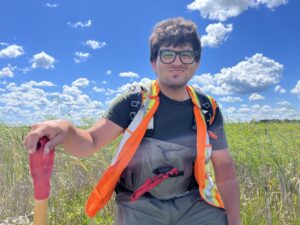
Aamir Shehzad Khan is a PhD candidate associated with the Peatland Ecology Research Group (PERG/GRET) at Université Laval. Bryophytes are Aamir’s favorite plant group, and he is enthusiastic about exploring and understanding the vital roles these fascinating plants play in different ecosystems, particularly in peatland restoration. Aamir firmly believes that community & stakeholder engagement, research communication, and knowledge transfer are essential pillars of modern academia. His research philosophy centers on the idea that love for nature and science has no boundaries and that collective action can drive a meaningful change.
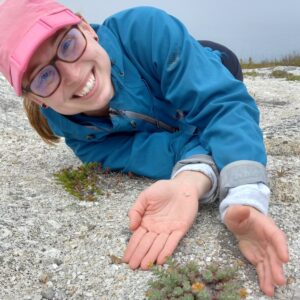
Rachel Kendall is a PhD student at Saint Mary’s University in Nova Scotia. Before beginning her PhD, Rachel worked in applied agriculture research on projects designed with and for local industries and communities. Here she gained a passion for applying science to support sustainable initiatives, such as her PhD research of plant adaptation and recovery in smelter-impacted peatlands.
Staff:
Shawna O’Flaherty is the interim Executive Director of SER-EC. She has an MSc in Ecology and Forestry Management at Université du Québec en Abitibi-Témiscamingue, a graduate diploma in Environmental Studies from McGill University’s Bieler School of Environment and a BA in Communications and Journalism from Concordia University. She works on monitoring pollinator insects as part of the revegetation plan for mines in Abitibi-Témiscamingue. Shawna was one of the founding members of the SER-UQAT student association.
 Luc Bélanger is a retired field biologist and scientific/conservation program manager, and now an Emeritus Collaborator with the Canadian Wildlife Service. His expertise is related to agroecology, landscape ecology and conservation biology. He is also a visiting researcher at the Department of Plant Sciences at Université Laval (Québec, Canada), and acted as the coordinator for SER-EC from 2021-2024. He remains an honourary member of the SER-Eastern Canada board.
Luc Bélanger is a retired field biologist and scientific/conservation program manager, and now an Emeritus Collaborator with the Canadian Wildlife Service. His expertise is related to agroecology, landscape ecology and conservation biology. He is also a visiting researcher at the Department of Plant Sciences at Université Laval (Québec, Canada), and acted as the coordinator for SER-EC from 2021-2024. He remains an honourary member of the SER-Eastern Canada board.


